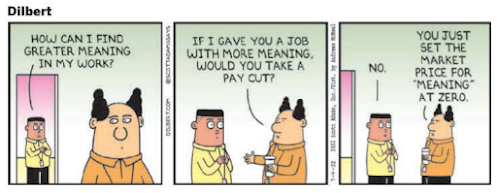Based on just announced preliminary results, it looks like the US will have experiences negative GDP growth for the first two quarters of 2022. Based on a "rule of thumb" introduced in a New York Times column in 1974 by then BLS Commissioner, Julius Shishkin, this could be an indicator of a recession happening. This rule of thumb got widely publicized, even showing up in some textbooks as well as being formally adopted as a defining criterion in some nations, such as Australia, for having a recession.
However, it has long been the case that in the US when recessions occur is decided by a committee of the National Bureau of Economic Research (NBER), which looks at a broader set of data to see widespread, deep, and persistent declines in general economic activity. Beyond just GDP these include employment, industrial production, and income. The committee has also traditionally waited for some time to make sure they are looking at fully adjusted and verified data before making their determinations.
Now it has usually been the case that these many variables tend to be highly correlated. So, in fact, since 1947, it has been the case that when Shishkin's rule of thumb criterion was met, these other variables were also declining sufficiently for the NBER to declare that a recession had occurred. There have been some cases where recessions have been declared even when there were not two successive quarters of decline. The obvious and recent example was second quarter of 2020, when GDP declined very sharply, along with all those other variables, in connection with the first round of the Covid-19 pandemic.
The exception in the other direction was in 1947, when indeed there were two successive quarters of negative GDP growth, but no recession was declared. Most notably at that time, employment did not decline, which may be the variable people really associate with a recession or deeper depression. But how could this come about, a negative GDP change while employment holds up? This in fact looks like what we are seeing now, as employment has steadily grown as has income over these last two quarters, even as it looks that GDP declined.
In both 1947 and this year it looks that the culprit has been that item labeled in the National Incone and Product Accounts, "changes in inventories." Negative numbers played a crucial role back then and this year as well for these negative GDP outcomes, even as employment and income held up. But in fact this item is not precisely what its label says it is. It is actually the change in the change in inventories, not just the change in inventories, which enters into the calculation of GDP changes.
So in both Q1 and Q2 of this year, inventories have been rising, a situation of disequilibrium with a surplus, more goods being produced than are being bought. But what happened is that this rate of rise decreased. The change of inventories was positive, but the change in the change of inventories was negative, and that played a crucial role in bringing about the negative GDP performance. But this change in the change of inventories is something not obviously tied to either employment or income directly, which gives us this peculiar outcome where we might not have a recession, even though Shishkin's "rule of thumb" is satisfied.
While this may seem strange, it is in fact equivalent to private capital formation. The difference between the two is that while changes in inventories are often themselves negative, if not now, we basically never see negative private capital formation, with the exception maybe of massive destruction of capital stock during a war. But if we compare capital stock to the level of inventories. it can be seen how this operates. Private capital formation leads to a change in the capital stock and a change in inventories leads to a change in inventories. Both add to GDP. But to see whether GDP is rising or falling one, must see if these items are rising or falling, the change in private capital formation, which is the change in the change of the capital stock, as well as the change in the change of inventories. It is the second derivatives of the capital stock and of inventories that tell one whether or not GDP is growing positively.
Barkley Rosser


